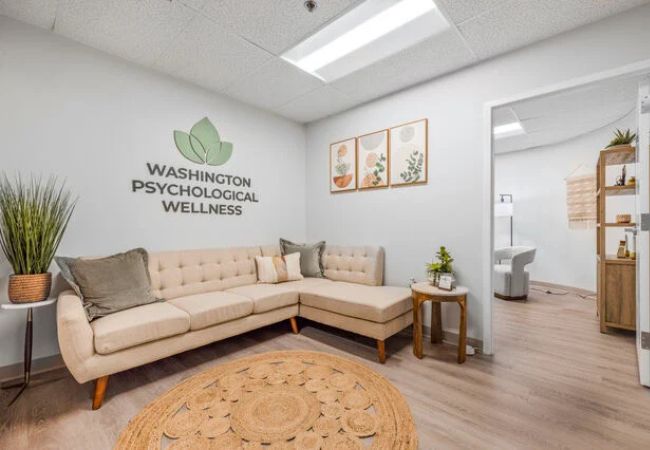Adolescent & Teen Therapy
Adolescent & Teen Therapy
Adolescence is a critical time of transition in a person’s life, full of significant change and growth.
As children enter this period in their lives, they figure out who they are while juggling shifting roles in their family, expectations, peer and academic pressures. This time can be turbulent and difficult for the whole family to navigate, often wrought with confusion and frustration.
How does one negotiate their identity no longer relating to others as children, but not yet as an adult? Who do they trust to support them in this endeavor?
On this search, teens are in desperate need of compassion, empathy, and an endless amount of patience. Such understanding also must be within the frame of clear, consistent boundaries, which is not an easy task for parents juggling myriad personal, professional, and familial relationships.
Many youths require a sanctuary from the struggles, insecurities, and isolation they face, where they can explore who they are with a non-judgmental, outside source.
In working with teens, our clinicians first and foremost foster a space where they feel truly safe to open up and trust the relationship. This is balanced with involving parents, other family members, and persons of importance in the teen’s life as appropriate, in the best interest of the adolescent’s growth and development. Therapy can help teens and adolescents develop a more secure and healthy identity and understanding of themselves, improve communication skills, and resolve conflicts both inside and outside the home.
Our clinicians are specialized in working with teens and adolescents on a variety of issues, including:
- Parent-Child Conflict
- Anxiety and Mood Disorders
- Poor Communication
- Body Image & Eating Concerns
- Defiance and Acting Out
- Academic Struggles / Performance
- Confidence Issues
- Risk-Taking Behaviors
- Withdrawal, Sadness, & Loneliness
- Substance Use
- Peer Pressure & Relationship Problems
- Self-esteem Building
- LGBTQ Identity Issues
- Sensitivity & Emotionality
Three Easy Ways To Connect With Us

Washington Psychological Wellness Gaithersburg

Washington Psychological Wellness Rockville

Washington Psychological Wellness Telehealth
We Offer Telehealth Throughout Maryland
Frequently Asked Questions About Abolescent/Teen Therapy
What type of training and areas do you specialize in for teen health?
The Teen Counselors & Therapists at Washington Psychological Wellness provide clinical therapy services and behavioral psychoeducational assessments. Staff specializing in teen mental health provide individual, family, collateral, group counseling, crisis intervention, and case management support.
We have expertise and experience in numerous teen-related mental health challenges, including, but not limited to:
- Depression
- Suicidal Thoughts and Behaviors
- Anxiety
- Psychosomatic Disorders
- Eating Disorders
- Low Self-Esteem
- Exposure to Violence
- Family Issues and Conflicts
- Grief and Loss
- Personality Disorders
- ADHD
- PTSD and Trauma
- School Difficulties
- Addiction and Co-Occurring Disorders
- Gender-Identity Issues
- LGBTQ Issues
- Life Transitions
Washington Psychological Wellness is proud to provide the open, non-judgmental, and safe space needed for your teen to comfortably work through their difficulties while learning more adaptive and productive means of relating and being.
How do I know if my teen needs counseling or therapy?
If your teen has been pushing you away, you are not alone. Countless parents have struggled with despair as they raised teenagers. While you may long to have your sweet child come back to you, it is important to keep in mind that increasing independence in adolescence is entirely normal. The adolescent brain is wired to establish autonomy and independent identity. This is what prepares teens for the real world. Otherwise, they would never leave home!
While some conflict with your teen is normal during adolescence, you should beware of some red flags. If your teen is self-isolating, acting angry or withdrawn, or no longer wants to participate in activities he or she once enjoyed, there might be a more severe problem that needs to be addressed. Common issues that plague teens include anxiety, depression, bullying, substance abuse, self-harming behaviors, losses, sexuality, divorce, and trauma.
Thankfully, the teen counselors and therapists at Washington Psychological Wellness provide a safe, compassionate space in which your teen can get the support they need!
How involved are parents in teen counseling and therapy?
It can be challenging to know what to do when your teen struggles with mental illness such as depression.
Getting your child help early on can benefit the family as a whole. Not only can it help problems from becoming worse, but counseling can also help increase communication strategies among family members and provide guidance to parents on how to cope and set appropriate boundaries. Parents often feel frustrated and walk a fine line between offering support and maintaining expectations and limits.
During the first session, we often meet with the parent(s) or caregiver(s) and the teen to start the session and ask about what brought them in for therapy. We want to make sure that our teenage clients can hear their parents’ or caregivers’ concerns. After meeting with the parties present together, we meet with the teen separately and ask them what they want to get out of therapy and what kind of change they would like to see. We have found that having a trusting relationship with their therapist is one of the primary predictors for successful teen counseling, and we begin developing this relationship on day one.
At Washington Psychological Wellness, you’ll also have the opportunity to participate in parenting and family sessions. During parenting sessions, you can learn about the ins and outs of adolescent development so that you no longer have to worry about whether your teen’s angst is normal or a cause for concern. You can also learn new parenting strategies, such as setting boundaries with your children. We also offer family sessions during which your whole family can learn conflict resolution strategies and increase mutual understanding and respect.
Because each family is different, your teen’s therapy plan will be based on your family’s unique needs and may or may not involve family or parenting sessions.
How can counseling or therapy help the parent-teen relationship?
Counseling and therapy can bridge communication between parents and teens. Parental involvement in therapy can give you the tools you need to effectively communicate and use creative strategies to help your teen succeed. Working together as a team, the therapist, teen, and parents devise a plan to ensure success and minimize confusion and powerless feelings.
Parental involvement through family and parental coaching sessions can also help you cope with the changes that surface as your teen matures and develops a sense of independence. You may experience sadness, anxiety, or fear as you go through these changes with your teen. You may even benefit from counseling to help you adjust to a new role in your life as your teen approaches graduation.
How do we prepare our teenagers for their first counseling/therapy session?
You’ve already done the best thing you could do for your teen – you provided them a safe place to talk about their feelings.
If your teen is fearful or resistant to therapy, it can be important to remember that they may be feeling anxious about starting therapy. Explore how your teen feels about therapy, discuss their concerns openly, and offer validation and information. You might affirm, for example, that therapy doesn’t mean that you are crazy or that something is wrong with you. It is a way of learning new skills to cope, understand yourself and your emotions in a healthy way, and develop ways to handle difficult and challenging situations.
Most importantly, for a teenager, it is the availability of an objective person to share their stresses, worries, and concerns. This can be incredibly relieving to a teen who might not want to worry or burden their parents or who might feel they need some privacy to explore their innermost concerns. Further, taking care of one’s mental health is just as important as physical health. Sometimes, it’s about prevention and learning new skills.
You can let your teen know that you are concerned about them and that while counseling may not be a choice, they can have input on their therapist.
At Washington Psychological Wellness, your therapist will help to ensure that there is a good fit and that your teen feels safe and secure for therapy to be effective. If your teen is still resistant to therapy, you may choose to go together as a family for your first session. At that time, an assessment and recommendation can be made with everyone present and involved. If you’re feeling frustrated, it might be helpful to have a session on your own as a parent to express your concerns and develop strategies to help your teen.
In counseling and therapy, do you focus on the past or the present?
Both!
At the start of treatment, our counselors and therapists will help your teen better understand themselves and their struggles. We want to know about their relationships and experiences and how they have informed how they approach their relationships and their worlds now. We work with our teens to develop this framework for understanding who they are and how they got here, and once we have this established, we work with our clients to understand the patterns they have developed.
With the help of their therapist or counselor, our teenage clients can connect the dots and better recognize why they have made their choices and how their experiences have shaped them. Therapists are also helping clients consider how they have coped in the past and help their clients as they develop more helpful coping skills.
Once our teens have this framework established, they can consider what is working for them and what they want to change. Given that they are making these decisions based on their newfound understanding, clients can view these changes with compassion and intention. Our therapists then support our clients in creating the changes they want to approach their lives and be effective and empowered.
Is teen counseling & therapy short-term or long term?
Every teenager comes to counseling or therapy with concerns that exist in the context of their personal biological history and life experience. As such, each teen’s process and need(s) will be different, and the amount of time needed in therapy will vary. The length of treatment depends on the presenting issue and the goals of treatment. Brief treatment might be as short as three to five sessions, while longer-term therapy might last several years.
At Washington Psychological Wellness, we will collaborate to determine the length of treatment that is clinically appropriate and necessary to best meet your teenager’s needs.
What are the signs of improvement we can look for?
Regardless of the source of their problems, almost all teens can benefit from some type of counseling. While parents are great at providing love and support, there are some issues that teens are too embarrassed to share with mom and dad. By having a compassionate, non-judgmental therapist to talk to, teens can open up about the things they find the most troubling. Instead of reacting to your teen’s problems like a parent might, your teen’s therapist can help him, or her think through the real-world consequences and find healthy ways to establish independence and individuality.
Counseling & Therapy Can Help Your Teen:
- Cope with peer pressure or bullying
- Reduce conflict and destructive behavior in or outside of the home
- Recover from an eating disorder or problematic eating behaviors
- Manage teen depression or anxiety
- Build self-confidence and make friends
- Deal with family changes such as divorce, separation, or addiction
- Learn to cope with a traumatic event or loss
- Cope with the ups and downs of teenage life
- Make healthy decisions and have self-respect
- Learn adaptive coping and self-care strategies
- Increase academic performance
- Establish adaptive life goals
- Explore questions related to identity
- Adjust to college or future adulthood
As a healing institution, we want you to know that adolescence is temporary and that things do get better. You were once a teenager yourself and managed to emerge from this trying period relatively unscathed. We are confident that your teen can do the same.
At Washington Psychological Wellness, with the help of a teen counselor, your teen can develop the skills necessary for navigating adolescence, college life, and the world beyond.
Want to learn more about Adolescent/Teen Therapy?
Book a 15 minute intro call

